Text
MATT TRAMMELL

This week we spoke to music writer and A&R, Matt Trammell. Born and raised in Flatbush, Brooklyn, Matt has been covering music and culture in outlets like The New Yorker, The Fader, Rolling Stone and more, before transitioning to his career as A&R at XL Recordings. Matt spoke to us about the local culture, music and people that influenced him to start his career, and the type of visibility and access he hopes to provide for creative people, black people and young people around him, now and in the future.

Who are you, where you from?
My name is Matthew Trammell, I’m from Flatbush.
You started as a music journalist and now you’re an A&R at XL – can you talk about your career and that transition?
Yeah definitely, when I first started writing the only reason that I wanted to do it was because I used to watch a lot of Behind the Music and Driven on VH1 and those kind of documentaries. They would always have the people that were getting interviewed about the subject – so it would be someone from Rolling Stone talking about Ludacris, or whoever they were having the special on. That’s when I really realized it’s a job you could have. I was watching TV and then I saw them – some of them were black, different races, some of them were women; so it was like “oh, that’s so accessible.” It felt accessible to me.
The Fader was the first job that was my real job, where I wasn’t in school or anything. That was super dope because by that period I was reading The Fader and knew it was like – they cover the dopest artists, they have the best parties and all of that shit. I feel like I got very lucky to be at places where the magazines still did hold a lot of importance. And at The Fader the cover is still mad important. That’s still a check mark in an artists career, still the temperature of what’s going on right now, the photos are always so beautiful, and the people who are writing for the magazine still have their own taste and fandom so that identity comes through.
How did you end up writing for The New Yorker? As a New Yorker that was crazy right?
Somebody sent me the listing me for the job at The New Yorker and I was like “ok, that’s mad funny, like it’s no way I would be working there, so I’m not even gonna apply, but thank you, that’s mad funny.” Then someone else recommended me for it and the next day someone hit me up. I went in for the interview still kind of feeling like “it’s no way this is going down.” But I got it. And it was very difficult leaving The Fader. It feels like a family thing like “no, I can’t leave this, we gotta keep doing this together for this space,” but then it was fine. That transition was bugged out - but I feel like I couldn’t not do that.

And you held down the “Goings on About Town” column which is legendary in itself right?
Well, it’s not about whose album out, whose video is popping. It’s just who is playing in New York City that week. And I would honestly recommend that to anybody that’s trying to discover new music or a new way of thinking about the whole thing. Just looking at concerts and looking at people who are playing in venues and shit like that is a whole other thing than a “Spotify Discover” playlist weekly. There are artists that are touring all the time, or are playing in their city all the time, that don’t get shit on blogs, don’t have tracks on streaming services but just have fans in the real world. That was a big thing for me discovering that.
Right, so at this point you’re this young black man from Flatbush with mad visibility - telling people from all walks of life, what they should do that weekend.
I’m just trying to have a balanced perspective. I’m not the first black person to write for The New Yorker but at the same time our generation is different to previous ones. I was always just trying have our perspective represented. Like one time there was this meme of the challenges going on like “So Gone” challenge, and two other ones. It was based off of Monica, “Knuck If You Buck ,” and one other song. And I did a piece on it and I felt like ok, nobody else can do this. Besides people who actually know who Monica is.
There’s a lot of music critics that don’t really know about regular cultural touchstones for the hood as far as music. There’s a ton of music journalists that are well-studied English student type kids who know about “all the right music that’s cool,” but they don’t know about Monica. So I was like ok, if I just stay to what I know and what I fuck with then I can’t really go wrong. But if I try to reach, the way I see a lot of people try to reach…that’s when I’m gonna look dumb.

Plus you get to put your people on, who might not be seen by that audience, who you feel deserve it.
It was easy to me because it was like, on that level there’s no magazine more fitting to do this than The New Yorker. To be on the ground in New York City and doing this on a level that’s respected and dope. One of the craziest things was putting Palisades on the cover. Obviously putting Show Me The Body, putting Wiki, a bunch of people in there. Being able to cover smaller things, in a bigger thing. It’s not a music magazine, and that was the first time I worked somewhere that wasn’t music focused. So they’re talking about Trump and real shit and I’m like…also there’s this dude that raps. It wasn’t as if I had to share the platform as far as what I wanted to cover. It was a lot of opportunity to just throw some shit up that I fucked with, that I think is cool, and just give that person that boost.
What were some of your favorite interview experiences as a writer otherwise?
Snoop was fucking amazing. He was putting out an album “Bush,” his comeback album with Pharell. He was doing a lot of press of it, and it was a good album! He did a release, and I can’t remember where it was, but there was some balcony and Fader was there covering the listening party. He’s sitting there - he had a bucket on, blunt rolled, just chilling, really just Snoop. So I was interviewing him and he fucking got a call and he was like, “Guess who that was?” And I was like “who,” and he’s like “Tim McGraw, he was just talking some business. Just player to player. No manager, no middle man, he just hit my line direct. That’s what I’m talking about.” And then I was asking him anything about songs I had questions about. Nothing’s fake about him. Snoop is amazing.
YG was also super dope because he had just got shot and he was very paranoid, obviously. Niggas were really tryna kill him. So it was a crazy situation, it wasn’t even supposed to be the cover story but while we were in LA they were like “oh something happened so we’re bumping this to the cover.” So that changed it even more – that was my second cover (Tyler was the first one). So then YG was paranoid but we – I don’t know why – but we got cool enough and he fucked with me and really let me into the whole shit. Like all these dudes really just bloods, like people just shooting at them. He was just in the hospital, and he’s still in LA, at the same time, moving the same way he always does. Completely open and completely giving.

And now you’re in A&R at a major label, XL. What’s it like?
I definitely have that feeling of “all right, cool, one of us is in here now.” Not even on some black shit - there’s a lot of people of color that work in the music industry. One thing that was big for me now – we have a much easier window into who does what, because of social media. So everybody in the music industry, and in every industry, is more visible. Like when we were growing up you gotta be Diddy, you gotta be Suge Knight, to be visible. And all the other people, A&Rs, they were invisible - you didn’t know who they were. But there were people of all backgrounds in this shit the whole time, we just didn’t know. Now we know, so now it’s more accessible. I think one thing that has held communities and groups back is not necessarily that there aren’t people like them in those positions, but that you can’t see them. And you can see more of it now. It’s a lot of different things you can do. You just need to be doing your homework to know what’s even possible.
How do you feel Matt?
I definitely feel good. I feel like the expectations I have are still like…I just wanna put down some shit that’s like undeniable. The people who you have in your brain, those people that you look up to - you just want to put some shit down like, this is gonna be here. So you try to put yourself more and more in a position to do that thing. So I feel in a position to do it, and that feels good. But now I actually want to do it.
1 note
·
View note
Text
THE KHAN
THE KHAN
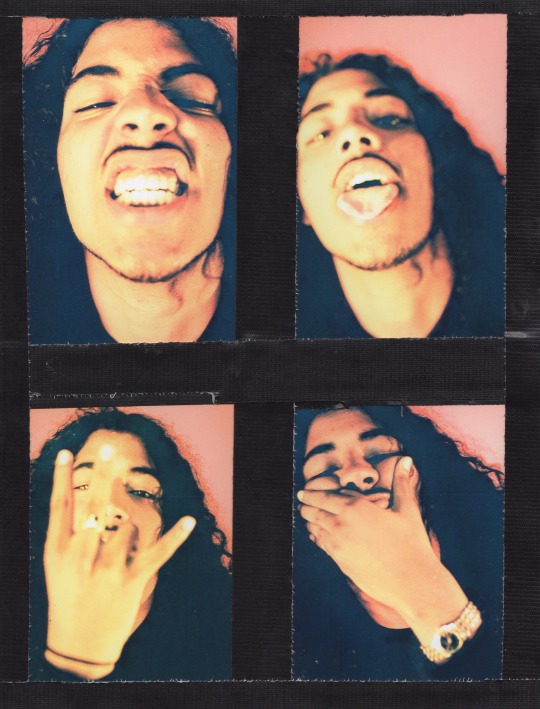
Hailing from uptown DC (14th street to be exact), The Khan has boasted an distinguished career in both the underground music world and DC’s cultural story today. From the same scene that’s delivered the likes of Yung Gleesh, Jay IDK, Goldlink and Shy Glizzy, The Khan’s undeniable influence on his local and national peers cement his place among the rest in the Chocolate City’s music legacy. The hometown hero stopped by CENO to talk about the history of his city, how he got into music, and the people and culture that helped him get there.
“I’m the Khan from DC – from uptown DC, 14th street. It’s punk, you got the punk scene. You got a go-go scene. You got a jazz scene. Black Broadway was in DC on U street, where I grew up at,” he explained. DC didn’t get the nickname ‘Chocolate City’ for nothing, and it’s cultural significance can’t be overstated. The historically black neighborhood surrounding U street, once known as “Black Broadway,” was a regular stop and home for historic black icons like Billie Holiday, Louis Armstrong, Zora Neale Hurston and educator and social visionary Mary McLeod, to name a few. But as the city became desegregated and black families started attending venues that had previously been “white-only,” the economy of U Street disintegrated and the area was absorbed by rapid gentrification.
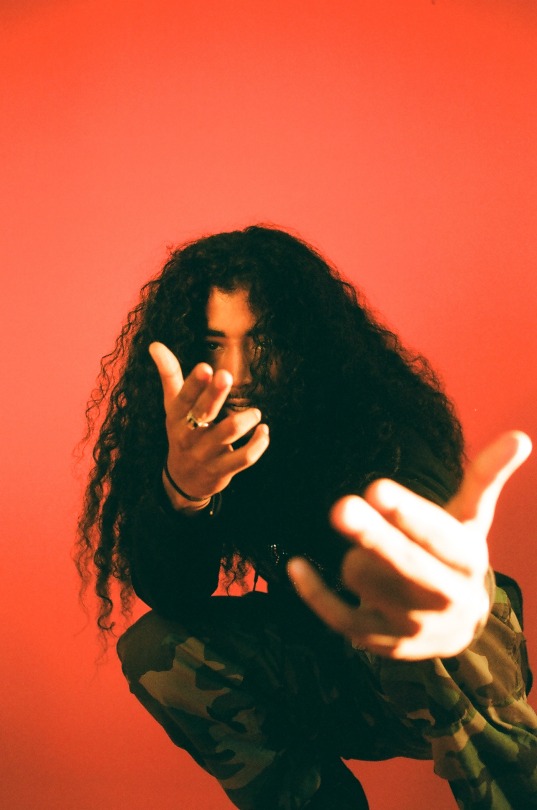
“It’s hella music orientated, hella culture there – drill culture, street culture. Now it’s a bar culture, it’s hella shit. Hella lingo and shit like that. But then you got me and my friends. Every artist that’s famous from DC, not everyone can stack that they’re really from DC. But we’re really from DC, people know us in DC and our whole come up. Like me going out to LA and doing the shit that I’ve been doing, it’s never really been done, as far are from like, young niggas. People don’t look outside of DC. Even when I went outside of DC for the first time it was crazy as fuck. I didn’t think it was real. It’s a small city, a little life every day. Everyone’s tryna work up, finesse, do what they gotta do. Everybody.”
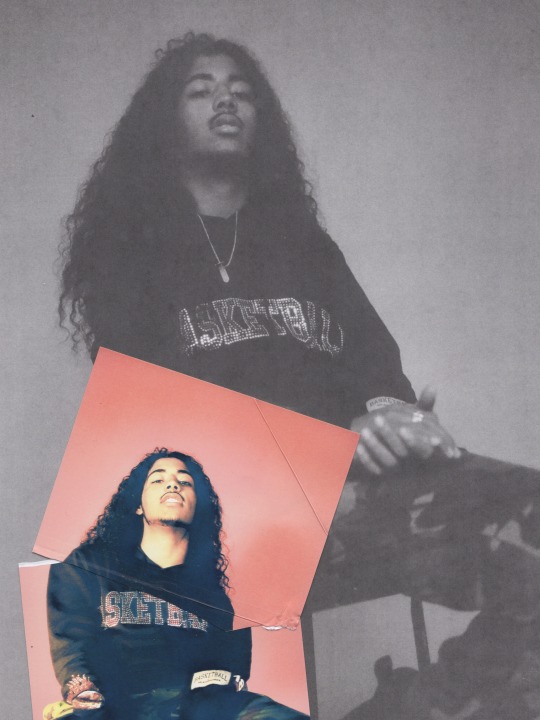
DC today looks different. Like any major metropolitan in America, white people have moved in without regard to the black legacy of the city, and they’re taking over. They own neighborhoods, blocks, streets, and establishments. A white bigot who ran on racist propaganda and dog whistle language was just elected to the highest political appointment in the United States, just a few blocks from where The Khan and his friends grew up. “I didn’t go to the White House til I was ten. And that shit’s literally a five minute drive from my house. I could see it from looking down, I could look all the way down and see it two miles down. I’m from 14th so it’s two streets over on 16th, but I ain’t never been in front of that jaunt til I was like ten. Me and my friends went down on bikes and got in trouble for being too close… It’s the capital too, that’s something I learned to accept – it’s the capital, nobody can’t do nothing about that. It’s just some government ass shit. You technically can’t even own land in DC because everything is federal property.”

While everyone’s distracted by what’s going down on Pennsylvania Avenue, The Khan is on the ground, in his own neighborhood, and with his own people. “DC is like black migo shit. Around my way we got a trap building and it’s like Latino people in it, doing they thing. And we got black people in there and we all brothers. Even white people, we like white people. We just started seeing them and was like…I dunno, we should be cool. DC is different.”
The Khan describes music as a staple in his immigrant household, and the metal and punk preferences of his parents and family are easy to track in his personal style and the wave of music he’s known for. “My mom don’t mind if we’re blasting music to the max, she does the same. My mom used to wake me up singing “Chop Suey” as a kid. Every morning. I remember my mom doing that, and I grew up with my dad too, he used to be a metal head. Had like long straight hair, tight leather pants, so my whole family, my Latino family of the side is like that too. A lot of my uncles listen to rock, they all came here during that era and that was the cool kids. The El Salvadorian side.”
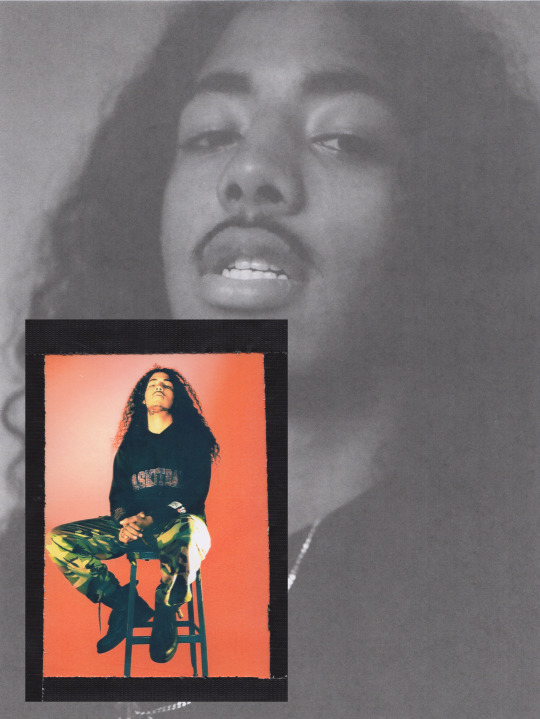
Meanwhile, his older brother helped him cultivate his passion for trap music alongside boom bat, and even a more classic New York sound. He gives a lot of credit for the what we might think of as old-school hip hop to that same New York sound (“real hip hop” as old heads would put it). “My older brother got on his trap shit. DC, especially back then was like, everything the hood. Blocks were like, hood, hood, hood. My first album I got was Get Rich or Die Tryin’. So I was on my hip hop shit too. He was putting me onto underground – mixtapes, not buying albums. And then when I started rapping I was into old school hip hop, I used to be on my rap-rap shit. To this day I will bar rap with anyone that wanna go. I’m just more into flows and stuff right now, more into sonics. And that’s just the way I want to go about it. And I feel like everyone that was rapping like that in a sense, wanted to sound like they were from New York. So when the old heads, E-bro and shit are like everyone don’t rap like this no more, it’s like bro – everyone not from New York. Everyone don’t know how to impersonate that. We can’t fake act like we on the train in New York. What the fuck?”
He’s okay with that. The impact of his local sound on the underground rap community backs up the pride he has for being from DC, and creating and perpetuating a sound specific to his his lived experience there. But something DC and NY undeniably have in common is a rapid and widespread gentrification at the expense of communities of color who have lived there and influenced the culture for generations. The Khan describes leaving DC for a few months and coming back to find parts of his city unrecognizable, and definitely not the same place he grew up in when he first met the people who would form the rest of his group, Atomos, The group met at the historic Cardozo High School, whose alumni include Marvin Gaye. “Atomos is Mahi, Red and Chachi… we started this group in Biology class. Atomos. We were like sixteen. It means individual, that’s where the word Atom came from and we were like that’s us, and we just ran with that…we became a super fucking group in DC.”

They were confident off top – The Khan describes Atomos getting booked for their first show off one song, and literally creating the rest of the songs for their set in that same week. “I made one song that was a freestyle everyone uptown was fucking with - “Intricate Softcore Thugging”- I don’t know why. Then my friend was throwing this DIY show, that’s part of the culture in DC too, art shows and things like that. So my friend booked us for that show, it was in a week, and I’m freaking out like we only got one song! So we ended up making a bunch of tracks for that set. And that was our first show ever, at this little dance studio, mirrors and poles and shit. And our first song, we just exploded, as soon we started performing we broke four speakers. We had a big ass intermission at some point because it was like – broke one, oh fuck, grab another one; broke another one, oh fuck, boom, then it’s like this big ass intermission because we had to find another speaker. Then we had to calm them down, move them back.”
“We just kept at it. We were the young kids from DC – to this day we still making history. My man Mahi just walked Tommy Hilfiger in fucking China and shit, that’s cool as shit. No one in uptown DC really did that, even for the whole city, we kicking down doors for people. And whether or not kids know it or not - they not gonna give it to me all the way - but me and my friends showing kids how to do it and showing them the steps. Just paving the way for our whole city. That’s why it’s more about the culture to me than anything. I got a responsibility down there.”
Stream FREE JESSE: THE MIXTAPE here, and follow him here.
0 notes
Text
SLUMS
SLUMS

Brooklyn’s own sLUms features MIKE, Darryl, Ade and King Carter, making honest music about the people around them every day.


Name: Mike
Age: 18
From: I stay in Brooklyn
“i make raps and beats”


Name: Ade Sayyed AKA Sixpress
Age: 19
From: The Bronx
“I am working on being humble“


Name: Derrick
Age: 21
From: Brooklyn, NY
“I am simply working on creating a better world not only for myself but for others.“


Name: Rueben
Age: 19
From: Live in Chelsea
“I make noise and stay lowkey“

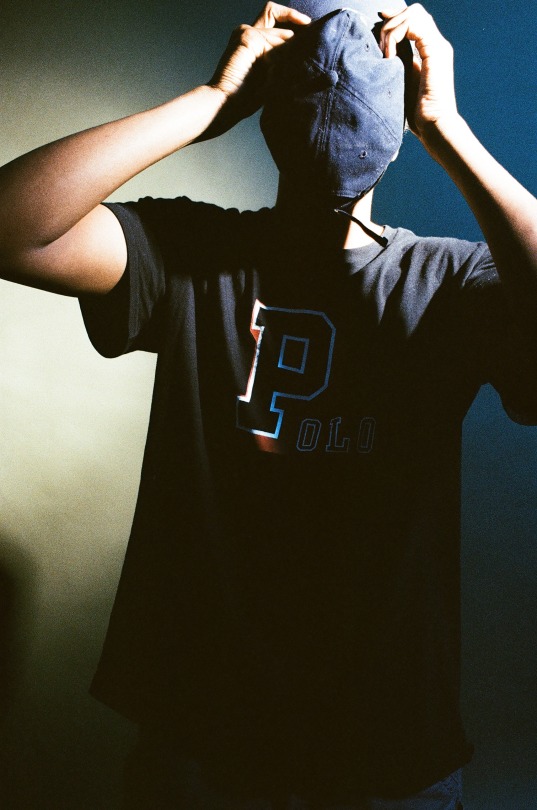
Name: Darryl
Age: 19
From: Brooklyn
“i got the glock...Nah jk im a producer”
10 notes
·
View notes
Text
Eartheater
EARTHEATER

Local noise artist Eartheater is a self described alien experimenting with the tensions of her personal identity and the opposing forces around her.

NAME: Alexandra Drewchin
AGE: 28
FROM: PA/NY
MAKE: Genra fluid chamber core





Make up by Celina Rodriguez
0 notes
Text
TRIPPJONES
TRIPPJONES

Tripp Jones, the Lower East Side Savior!
Name: TRIPPJONES Age: 24 From: LES, NY Type of music: Shadow Core




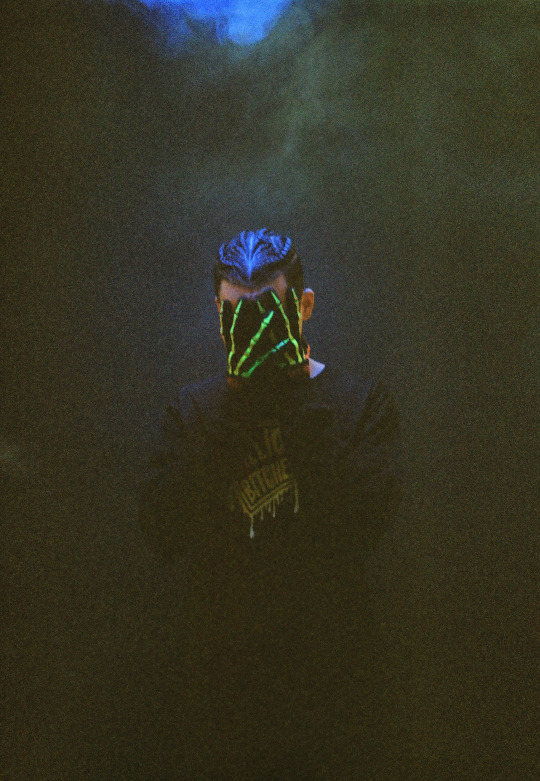




1 note
·
View note
Text
CL<3Y

“I make stuff. Funeral on my Body. I’m painting right now I’m recording later see youu soon”
Name: CL<3Y
Age: 20
From: Park Slope, BK
“I make stuff. Funeral on my Body. I’m painting right now I’m recording later see youu soon”

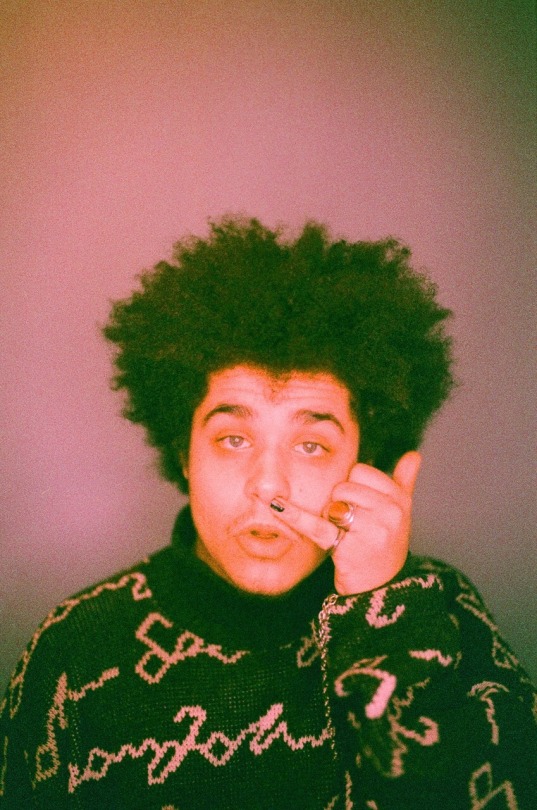

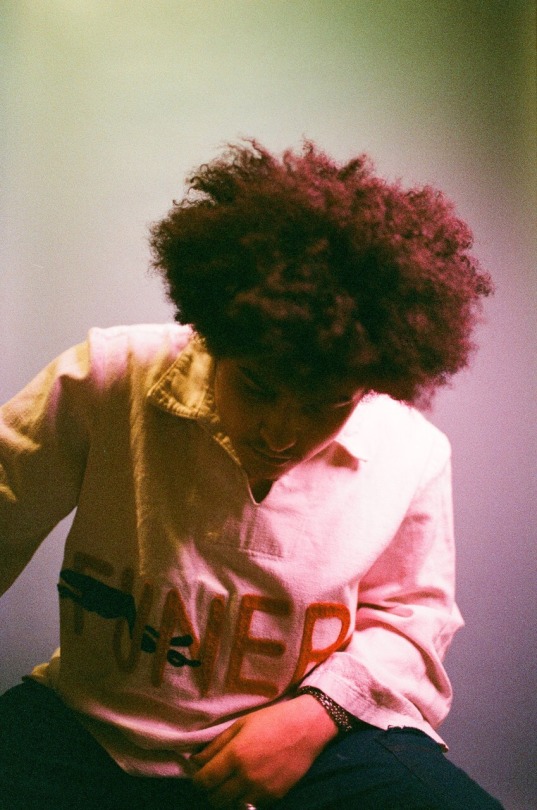
0 notes
Text
DREAMCRUSHER
DREAMCRUSHER

“My goal is to make music to destroy patriarchy to. I make NIHILIST QUEER REVOLT MUSIK”
Name: Dreamcrusher
Age: 28
From: Wichita, KS









LISTEN TO MORE MUSIC HERE
2 notes
·
View notes
Video
youtube
HUNGRY by SHOW ME THE BODY FT. DREAMCRUSHER
FILMED BY ELIJAH MAURA
14 notes
·
View notes
Text
ECW
ECW

ECW is a rap collective whose members hail from all the boroughs of NYC.

Name: Eustace.k
“I’m Musician, Artist, Designer and Stylist”
From: Crown heights, BK
Age: 20
Socials: @Gravy.k

Name:Lou Smizzy
“I sing, rap, produce and make art”
From: Flatbush, BK
Age: 19
Socials: @brookloon

Name: Shaqqy
From: Brooklyn Everywhere in bk
Age: 19
“I Rap, produce, paint, art direct for film project ‘Going OT’ ”
Socials: @shaqqy.sun **

Name: Shabazz AKA Chip Skylark
“I am a youth director, I make music and introduce new ways to expose our work to the public “
From: Crown Heights, BK
Age: 20
Socials: @skylark.ecw

Name: Burton / Daze
“Im a producer, rapper, overall creative”
From: Brooklyn, Fort Greene
Age: 20
Socials: @slow__mojo


Name: Ruby aka Red Note
��I’m a high school student, I write music and I work for an Immigrant rights organization - Make the Road"
From: Mexico / Uptown, morning side heights
Age: 17
Socials: @rubytdoyle

Name: Jimmy Harlem
“A fashion merchandiser at Fifh NYC and a Designer and Creative Director at Pluh!”
From: The Lower
Age: 20


Name: Joesph / uncle bammo
“I rap and break walls and barriers”
From: Manhattan LES born in Jamaica
Age: 18



Photos by Asha Efia shot on Lomography NYC 35mm Film
3 notes
·
View notes
Video
youtube
“Trash” By Show Me The Body shot By Asha Efia of Ceno
2 notes
·
View notes